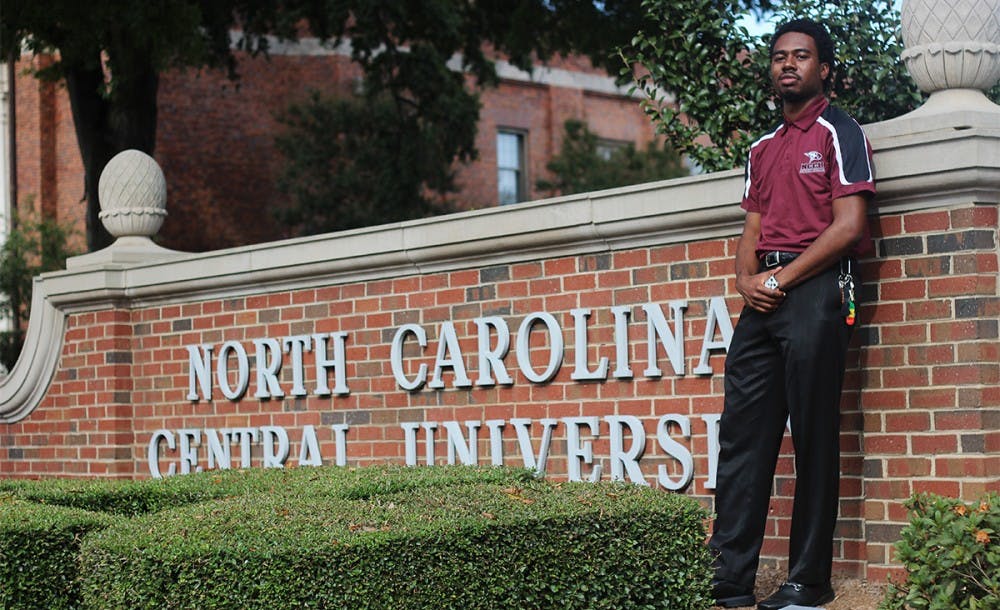‘Rough spots’
N.C. Sen. Gladys Robinson, D-Guilford, a former UNC-system Board of Governors member, said HBCUs have had trouble recruiting faculty and resources at the same rate as other public universities.
“They started at a disadvantage in terms of funding from the time they became a part of the UNC system,” Robinson said.
UNC-system President Tom Ross said at a news conference last week that a persistently troublesome economy continues to make less funding and financial aid available for all students — but HBCUs have seen the steepest resulting enrollment declines.
Also affecting HBCUs are changes in student admission and progression standards at system campuses, a move mandated by the Board of Governors in 2011.
“This is a transition time,” Ross said. “Any time you go through the kind of economy we have for the last five years, you’re going to see some rough spots.”
Jon Young, provost and vice chancellor for academic affairs at Fayetteville State University, said this year, the school had to freeze all faculty travel and postpone hiring of tenure-track faculty.
Only one HBCU in the state, North Carolina Agricultural & Technical State University, saw an increase in enrollment funding for the 2013-14 academic year — and budget cuts hit all five of the state’s public HBCUs and UNC-Pembroke, a minority institution created to serve Lumbee Indians.
And students are noticing.
Priscilla Azaglo, student body president at Elizabeth City State University, said the drop in enrollment at her school has sparked conversations and concerns across campus.
ECSU enrolled about 2,400 students this fall — down from about 3,000 only three years ago. The drop contributed to the university losing nearly 10 percent of its state funding in 2013-14.
“Students have noticed that the student body isn’t as big as it used to be,” Azaglo said. “It’s been a tough year.”
To get the day's news and headlines in your inbox each morning, sign up for our email newsletters.
Alex Sampson, an NCCU junior and editor-in-chief of the school’s student newspaper, Campus Echo, said she’s heard many NCCU students complain about living conditions in the dorms and call for upgrades to the 103-year-old campus.
But a 5.5-percent overall cut to the school’s budget has left little extra money for construction projects, she said.
“I think (the buildings’ condition) really impacts prospective students’ idea of how the campus is,” she said.
Looking long term
Though HBCUs are not the only schools struggling with financial woes, Taylor said campuses need to implement change for future prosperity — and they need to act quickly.
“You simply can’t cut your way to profitability,” Taylor said. “It’s a one-trick pony, but it’s not sustainable for the long-term.”
Both private and public HBCUs have to start tapping more diligently into their alumni bases for funding, which the schools have not done historically, he said.
Taylor added that HBCUs need to broaden their appeal beyond the African-American population, which he said often makes up between 80 and 90 percent of each school’s student body.
Ross said in the news conference that system leaders are emphasizing how the schools can play bigger roles in strengthening their region’s economy and workforce through particular areas of academic expertise.
At last week’s Board of Governors meeting, one board member brought up possible campus consolidation within the UNC system, citing ECSU’s current budget trauma. Ross said consolidation is not a priority for the near future.
But ECSU is in need of rapid internal reform, Taylor said.
“I think (system leaders) should give the institution an opportunity to turn around in a finite and reasonable period of time — longer than six months,” he said.
“If they cannot figure it out, then it’s only fair to North Carolina that these resources be redistributed.”
HBCUs still valuable
Meanwhile, students at North Carolina’s public HBCUs are determined to keep campus life thriving.
Azaglo said a greater number of student activities at ECSU are helping to keep the university vibrant, including several spoken-word groups.
And Jalynn Jones, student body president at Fayetteville State, said the student body is becoming more inclusive by increasing outreach to the LGBT community on campus.
There has been national debate on whether minority institutions are as necessary in the 21st century — but Azaglo said she strongly disagrees.
“It doesn’t matter if it’s a minority school — it’s the education that is the most important part,” she said.
Taylor said HBCUs continue to produce most of the African-American leaders, professors and STEM professionals nationwide.
“If you take a school like N.C. A&T, where 50 percent of the country’s undergraduate black engineers come to one school, it would seriously impact our workforce diversity initiative if that school didn’t exist,” he said.
N.C. A&T was just ranked the top public HBCU in the country by U.S. News & World Report.
HBCUs only represent 3 percent of four-year universities — but produce about a fifth of African-American college graduates.
Sampson said a major impact of HBCUs is the confidence it gives to some minority students, like her, who felt out of place in high school.
“Growing up, there weren’t a lot of people that looked like me, to put it bluntly,” Sampson said.
“I see females here comfortable with their hair, their curves, their clothes — and that’s really made me confident as a black female.”
state@dailytarheel.com



